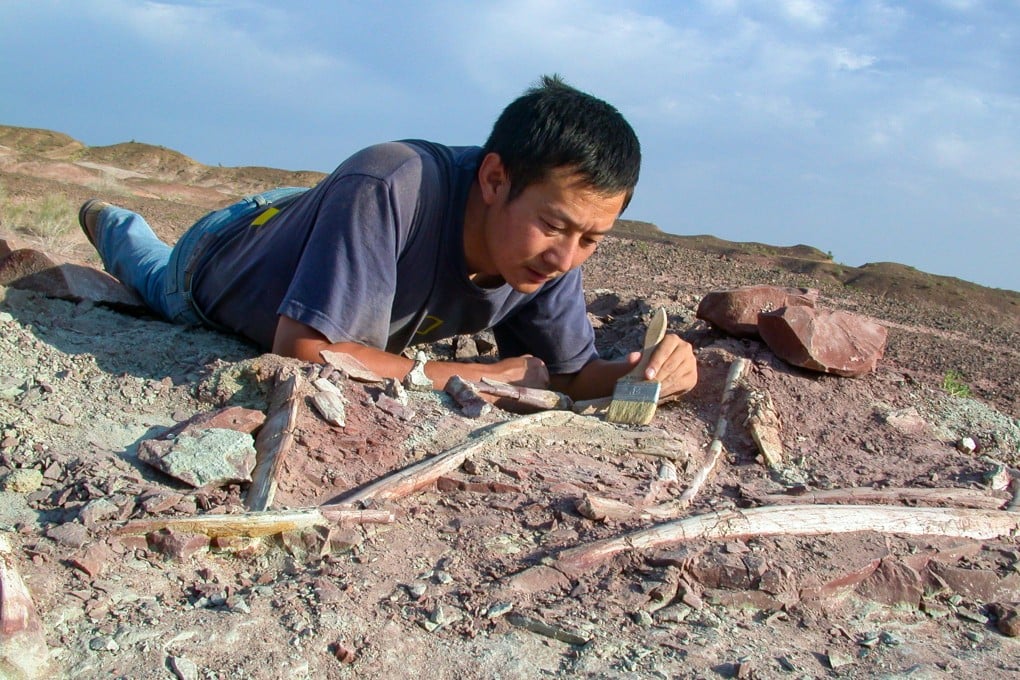China’s dinosaur research ready to go global in first Central Asia expeditions
Leading Chinese scientist hopes project will be the ‘beginning of our international expeditions’ after decades of playing catch-up

“I have witnessed China’s dinosaur research rise from its low ebb to the vibrant state it is in now. We are ready to go global,” said Xu Xing, director of the Institute of Vertebrate Palaeontology and Palaeoanthropology (IVPP) in Beijing.
The institute plans to conduct joint scientific expeditions in Kyrgyzstan, Kazakhstan and Mongolia. It will be China’s first time leading an international palaeontology expedition in the Gobi Desert or Central Asia.
The institute is at the forefront of research in palaeontology and palaeoanthropology and is affiliated with the Chinese Academy of Sciences.
Mongolia is known as the “land of the dinosaurs” and is an important site for fossils from the Cretaceous period, between 144 million and 65 million years ago. It has yielded several famous dinosaur fossil discoveries.